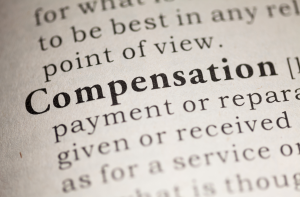This type of damage, which was caused to your neighbor, is classified in Jewish law as geramah, which means indirect damage. The general principle that governs all damages in this category is that a court of Jewish law, or Beis Din, cannot obligate one to pay. Only direct damages are obligated to pay; indirect forms of damage are legally exempt from paying.
There is, however, another principle connected with such cases, which the Talmud defines as “patur medinei adam vechayav medinei shomayim,” which means that although one is legally exempt from paying it in a court of law, one remains ethically and morally bound to reimburse the person for the loss incurred by one’s negligence. Another example of this would be if one forcefully held onto another’s money when the other wanted to invest it and it would have earned a profit. This indirect form of damage would oblige the holder, ethically but not legally, to reimburse the owner for his loss of profit.
Therefore in your situation, Jewish law would bind you ethically to reimburse your neighbor. By doing what is ethical and moral, I’m sure you will be blessed from Above with far more than you will pay, besides the Kiddush HaShem, sanctification of G-d’s name, by doing what is proper and moral. As with all monetary questions, for a final ruling be sure to discuss this with a rabbinical authority in Jewish monetary law.
Sincerely,
Rabbi Yerachmiel Fried


